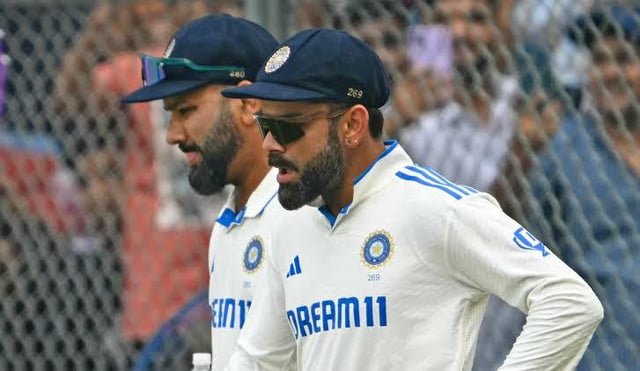
As Shubman Gill prepares to lead India into a new phase of Test cricket, he has not shied away from giving credit where it is due. Speaking about the legacy left behind by seasoned veterans, Gill acknowledged the invaluable impact players like Virat Kohli, Rohit Sharma, and Ravichandran Ashwin have had in shaping India’s approach to winning Test matches away from home. His statement, “Guys like Virat bhai, Rohit bhai and Ashwin bhai, they have given us the blueprint on how to tour away from home and how to win Test series away. We have that blueprint,” underscores a thoughtful understanding of the culture that has been built within the Indian dressing room over the past decade.
Historically, India had a reputation of being a dominant force at home but struggling in overseas conditions, particularly in countries like Australia, England, South Africa, and New Zealand. This narrative began to change in the Kohli era, with a heightened focus on fitness, fast bowling, and mental toughness. Under Kohli’s aggressive leadership, and with contributions from experienced tacticians like Ashwin and calm minds like Rohit Sharma, India began to turn the tide abroad. Landmark victories such as the Test series win in Australia in 2018-19, and again in 2020-21 with a depleted side, showed that the team had found a sustainable formula for success overseas.
Shubman Gill, having been part of the famous Gabba victory and several other key tours, is well aware of the foundations that were laid during that period. As he steps into the role of Test captain, his acknowledgment of his seniors’ contributions suggests a continuity in philosophy rather than a complete overhaul. He understands that building upon a successful structure is often more effective than trying to create something entirely new.
This “blueprint” that Gill refers to includes a few core principles: backing a strong pace attack regardless of conditions, placing an emphasis on fitness, and adopting a mindset of resilience and fearlessness. It also involves meticulous planning, rotation policies to manage workloads, and the belief that Indian players can win anywhere in the world. These were values embedded into the squad’s DNA by players who consistently delivered under pressure.
Ashwin’s role, too, goes beyond mere statistics. His adaptability, cricketing intellect, and ability to contribute with both bat and ball have been crucial in turning overseas matches in India’s favor. Rohit Sharma, known for his calmness and ability to grind in tough conditions, offered a stabilizing influence, particularly in opening partnerships which are so vital overseas.
Gill’s recognition of these leaders also signals his own maturity and willingness to learn. While he may bring his own style to the captaincy, there is a clear intention to honor the roadmap that has brought India recent overseas success. His words reflect a team-first approach, where past lessons are seen as stepping stones for future triumphs.
As India prepares for new challenges in England and Australia under Gill’s leadership, it will be fascinating to see how this blueprint evolves. With a young core and seasoned players like Bumrah still active, the team stands at a promising juncture. Gill’s respectful nod to his predecessors not only shows gratitude but also signals that Indian cricket’s ambitions remain firmly global.
For more news updates, follow 12B Sports India Facebook .

